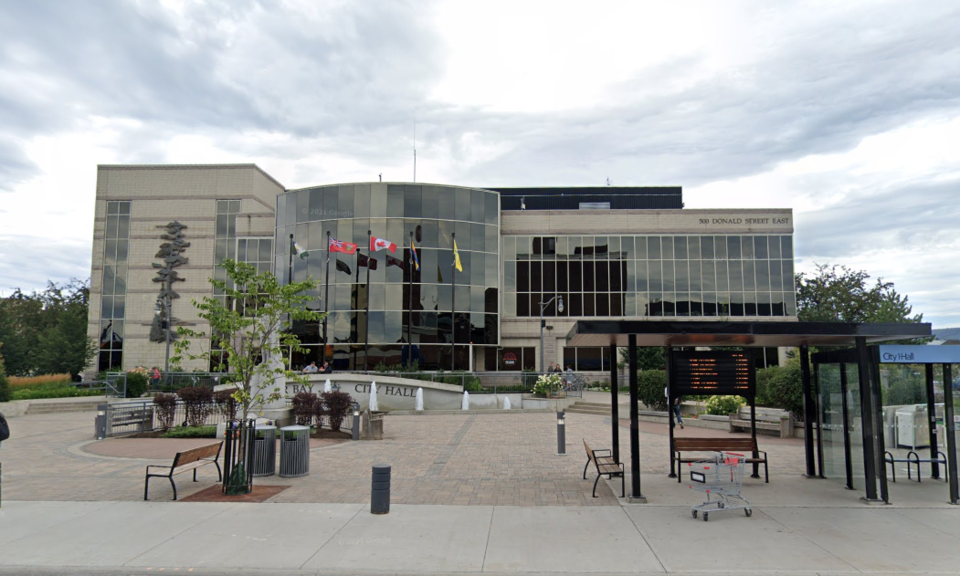THUNDER BAY — A man who visited Thunder Bay city hall to voice his opposition to flying the Pride flag wanted to know who summoned the police on him.
The Information & Privacy Commissioner of Ontario, however, says the identity of the city employee who made the call is protected by the Municipal Freedom of Information and Protection of Privacy Act.
The case dates back to June 2019 when an individual went to city hall to demand that Pride flags that had been erected in recognition of Pride Week be removed from outside the building.
City hall security staff asked the person to leave.
When he refused, Thunder Bay Police were called via 911.
Although the man eventually left city hall on his own, officers located him nearby and served him with a notice under the Trespass to Property Act.
He said he had gone to city hall to inform certain individuals he would sue them over the flying of the Pride flags.
He requested to see the mayor, he said, but was told he would have to wait.
The man claimed he was "very well mannered" but that a city employee "aggravated the situation for no reason other than [their] own."
Police, however, said he was irate and upset about the flags, and described his behaviour toward city hall staff as "aggressive."
The man later filed a request to police under the Freedom of Information and Protection of Privacy Act, saying "I would like the names of the two officers responsible for filing and giving me a Notice to Trespass...so I can sue them for extortion and mischief and to one perjury and the other corruption. As well as the complainant's name so I can sue for mischief."
Police granted access to the officers' names but denied access to the 911 caller's name, based on the Act's discretionary personal privacy exemption.
It gives police the right to refuse to disclose information in a record if such disclosure constitutes an unjustified invasion of personal privacy.
The man next filed an appeal with the office of the Information & Privacy Commissioner.
According to the adjudicator's report, which was recently made public, police maintained that the identity of the 911 caller, in this case, is personal, not professional information.
Even though the caller is a city employee, police pointed out that incident in question arose outside of that employee's professional duties.
They said the employee was merely assisting the security officer by making the 911 call in order to maintain the safety of everyone at city hall.
The employee also noted that there is nothing in their job description "to do with offering safety or security for city hall or for the issuing of trespass notices."
Furthermore, the employee submitted that police were called because the employee "feared for their own personal safety," not because of some professional duty.
The adjudicator agreed that the information being requested was personal, and agreed that police properly exercised their discretion in withholding access to the city employee's name.
"In my view, it is reasonable for complainants to expect that the personal information they provide to the police as part of a complaint remain confidential and not be shared with the individual about whose conduct they complained," she said.
The adjudicator also noted the police submission that their consistent practice is to treat the names of 911 callers as confidential, since "its release would cause the affected party distress because they may be exposed to retaliation."
